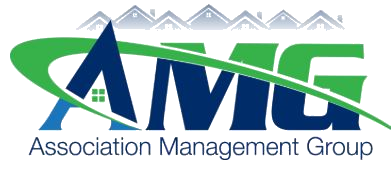Managing Four Common Types of Conflict in HOA and Condo Communities
/Conflict within HOA and condo management teams is inevitable and can arise in four primary forms. Anyone who has worked with community associations knows that conflicting opinions are common. For example, I recall a well-intentioned board passionately arguing over the selection of paint colors. Since everyone’s goal was to increase property values, all members agreed on picking a group of realtors experienced in understanding what sold best in the community to select new colors. As it turned out, nobody got the paint colors they wanted, but they met the goal they set out to accomplish.
It’s important to note that resolving conflicts may not always fall within the manager's responsibilities, and overstepping these boundaries can be ill-advised. However, here’s a look at four types of conflict and strategies for addressing them, if appropriate.
1. Individual Issues
This occurs when one team member is difficult, disengaged, overly critical, or generally causes tension within the team. To address this, avoid scapegoating or ganging up on the individual. Instead, ask sincere questions to understand their perspective and build empathy.
Example: A board member who consistently opposes decisions may feel unheard. By engaging in a one-on-one conversation, you or other board members might uncover underlying concerns that can be addressed.
2. Interpersonal Clashes
This type of conflict happens when tension or animosity between two individuals impacts the entire team. In such cases, mediation can be effective. An internal mediator, such as an experienced community leader who has the mutual respect of other members, often meets with each individual separately, then together, to allow them to express their feelings and work towards a resolution. A mediator does not necessarily have to be a specialist.
Example: Two board members with differing opinions on a budget line item might resolve the issue by consulting an expert on that line item.
3. Factional Disputes
Factional disputes arise when two factions within the team are at odds, each with different goals or projects. To manage this, consider bringing in an external mediator to challenge the group's thinking and present compromises or alternative solutions. Many attorneys also provide mediation services, which can be helpful if a formal mediator is needed. This should not be thought of s litigious; it should be seen as a way of bringing people together. Certified mediators often have specialized training in this skill.
Example: When two committees have conflicting visions for community improvements, an external mediator can help balance their perspectives.
4. Group-Wide Disagreement
Group-wide disagreement occurs when everyone is in conflict, often due to poor overall team performance. To resolve this, go back to basics by assessing and reemphasizing the team’s overall goals, vision, and identity. In many cases, without getting involved in the role of mediator, a manager can remind board members of the association's goals. If the goals are not clear, the manager can lead a session helping board members clarify their goals and objectives.
Example: If general dissatisfaction arises over a series of failed initiatives, reassessing the team's mission and aligning efforts can help restore harmony.
Effective conflict resolution is crucial for maintaining a harmonious and productive environment in HOA and condominium communities. When conflicts are managed well, it leads to higher satisfaction among board members and residents, fostering a community that thrives on cooperation and mutual respect. Developing and refining conflict resolution skills can greatly enhance the manager's ability to navigate and mitigate disputes, ensuring the long-term success and well-being of the community. I vividly recall my Harvard Business School Negotiation Professor emphasizing the importance of understanding interests, fostering open communication, and seeking collaborative solutions.
Reflect on your conflict resolution strategies and consider seeking further training if needed. Here is a good place to start: New Conflict Management Skills: Understand How to Resolve “Hot Conflicts”.






































